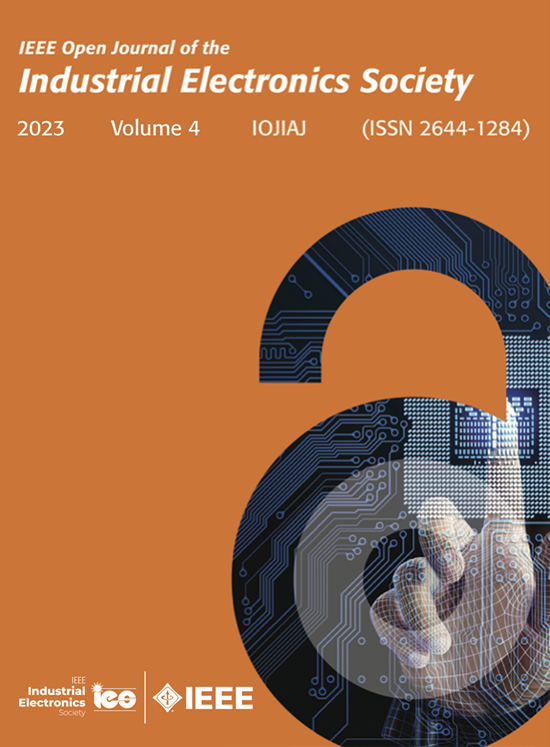配电网中的电动汽车智能充电--利用环路中的硬件设置进行实验评估
IF 5.2
Q1 ENGINEERING, ELECTRICAL & ELECTRONIC
IEEE Open Journal of the Industrial Electronics Society
Pub Date : 2024-01-10
DOI:10.1109/OJIES.2024.3352265
引用次数: 0
摘要
面对有限的电网容量,电动汽车(EV)的需求不断增长,这促进了智能充电(SC)算法的开发和实施。实验验证在推动这一领域的发展中起着举足轻重的作用。本文为低压配电网应用设计了一种分层混合整数编程电动汽车智能充电(SC)算法。针对系统的不确定性,引入了灵活的后退视界方案。该算法还考虑了 IEC/ISO 15118 和 IEC 61851-1 等协议中的实际限制。所提出的算法在包含真实低压配电网模型的电力硬件在环测试平台中进行了验证和评估。此外,该算法的能力还通过八种情景进行了检验,其中四种情景侧重于输入数据的不确定性,两种情景涉及额外的电网容量限制。结果表明,即使在输入数据不确定的情况下,SC 算法也能在满足充电需求的同时充分降低电动汽车充电成本,并大幅降低峰值功率和过载持续时间。事实证明,附加的电网限制措施能进一步改善峰值需求的降低和过载的缓解。最后,对所开发算法的局限性和潜力进行了仔细研究。本文章由计算机程序翻译,如有差异,请以英文原文为准。
EV Smart Charging in Distribution Grids–Experimental Evaluation Using Hardware in the Loop Setup
The rising demand for electric vehicles (EVs) in the face of limited grid capacity encourages the development and implementation of smart charging (SC) algorithms. Experimental validation plays a pivotal role in advancing this field. This article formulates a hierarchical mixed integer programming EV SC algorithm designed for low voltage (LV) distribution grid applications. A flexible receding horizon scheme is introduced in response to system uncertainties. It also considers the practical constraints in protocols, such as IEC/ISO 15118 and IEC 61851-1. The proposed algorithm is verified and assessed in a power hardware-in-the-loop testbed that incorporates models of real LV distribution grids. Furthermore, the algorithm's capabilities are examined through eight scenarios, out of which four focus on the uncertainties of the input data and two address the engagement of extra grid capacity restrictions. The results demonstrate that the SC algorithm adequately lowers the EV charging cost while fulfilling the charging demand, and substantially reduces the peak power as well as the overloading duration, even when faced with input data uncertainty. The additional grid restrictions in place are proven to improve peak demand reduction and overloading mitigation further. Finally, the limitations and potentials of the developed algorithm are scrutinized.
求助全文
通过发布文献求助,成功后即可免费获取论文全文。
去求助
来源期刊

IEEE Open Journal of the Industrial Electronics Society
ENGINEERING, ELECTRICAL & ELECTRONIC-
CiteScore
10.80
自引率
2.40%
发文量
33
审稿时长
12 weeks
期刊介绍:
The IEEE Open Journal of the Industrial Electronics Society is dedicated to advancing information-intensive, knowledge-based automation, and digitalization, aiming to enhance various industrial and infrastructural ecosystems including energy, mobility, health, and home/building infrastructure. Encompassing a range of techniques leveraging data and information acquisition, analysis, manipulation, and distribution, the journal strives to achieve greater flexibility, efficiency, effectiveness, reliability, and security within digitalized and networked environments.
Our scope provides a platform for discourse and dissemination of the latest developments in numerous research and innovation areas. These include electrical components and systems, smart grids, industrial cyber-physical systems, motion control, robotics and mechatronics, sensors and actuators, factory and building communication and automation, industrial digitalization, flexible and reconfigurable manufacturing, assistant systems, industrial applications of artificial intelligence and data science, as well as the implementation of machine learning, artificial neural networks, and fuzzy logic. Additionally, we explore human factors in digitalized and networked ecosystems. Join us in exploring and shaping the future of industrial electronics and digitalization.
 求助内容:
求助内容: 应助结果提醒方式:
应助结果提醒方式:


